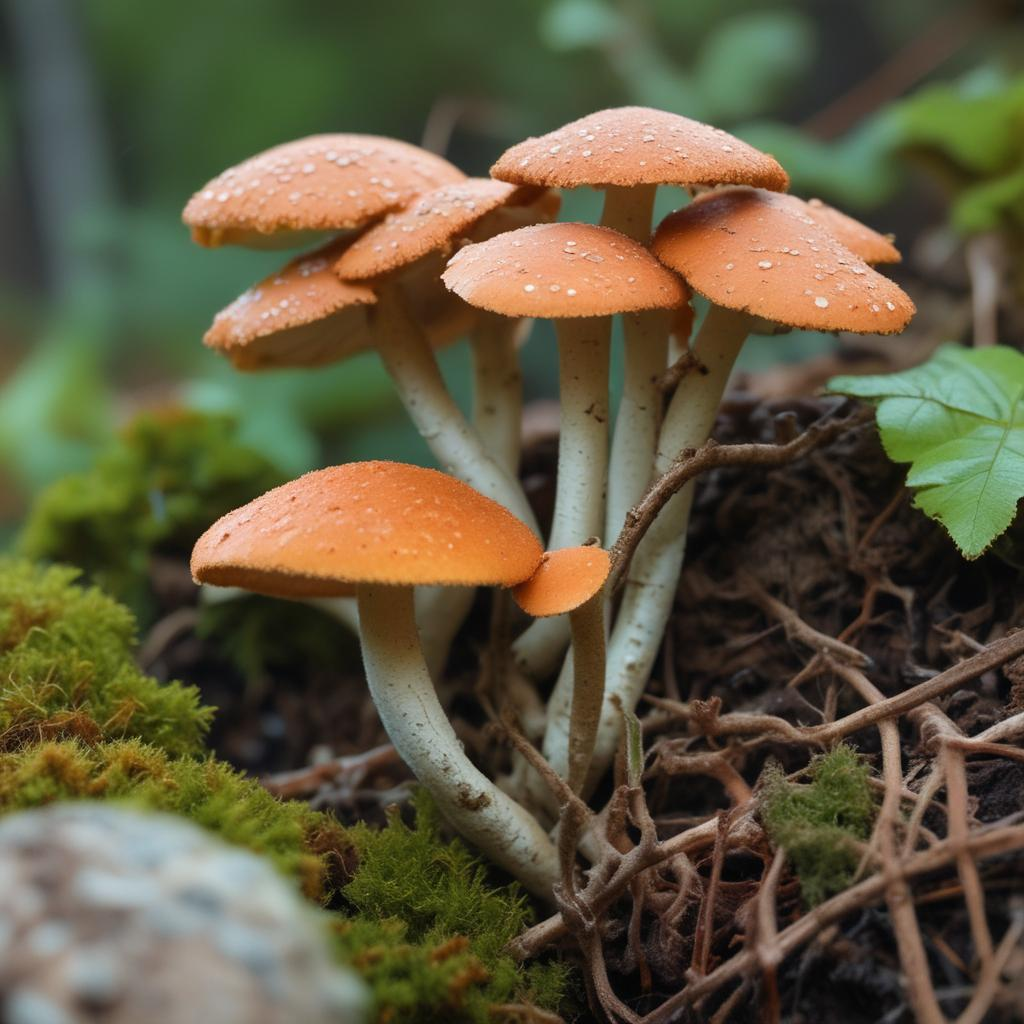Introduction to Fungi as Nature's Recyclers
Fungi, an often overlooked kingdom of organisms, play crucial roles in ecosystems across the globe. From tiny yeasts to sprawling mycelial networks, fungi are essential for maintaining balance in nature. They act as decomposers, mutualists, and even as pathogens. This article will explore the fascinating role fungi play as nature's recyclers, delving into how they contribute to nutrient cycling and environmental sustainability.

Q1: What exactly are fungi and how are they classified in the biological world?
Fungi are a distinct kingdom of life, separate from plants and animals. They include a diverse range of organisms such as mold, yeast, and mushrooms. Fungi are eukaryotic, meaning their cells contain a nucleus and other organelles enclosed within membranes. Unlike plants, fungi do not have chlorophyll, do not photosynthesize, and rely on absorbing nutrients from their surroundings.
Q2: How do fungi act as recyclers in nature?
Fungi are primarily decomposers, breaking down the complex molecules in dead organisms into simpler compounds. This decomposition process recycles nutrients back into the ecosystem, making them available for other organisms, including plants, which in turn support a wide range of animal life. Without fungi, fallen leaves, dead trees, and other organic matter would not decompose efficiently, leading to nutrient-depleted environments.
Q3: Can you explain the process of decomposition by fungi?
Fungi decompose organic matter through enzymatic processes. They secrete enzymes outside their bodies, which break down large organic molecules into smaller, more manageable compounds. The fungi then absorb these smaller compounds to fuel their growth and reproduction. This process of external digestion allows fungi to decompose materials that are difficult for other organisms to digest, such as lignin and cellulose in wood.
Q4: Are all fungi beneficial decomposers?
While many fungi are beneficial decomposers, not all fungi are friendly to the environment. Some species can be pathogenic to plants and animals, including humans. However, even these fungi play a role in natural ecosystems, helping to control populations and recycle nutrients, albeit sometimes in harmful ways.
Q5: What is the ecological importance of fungi beyond decomposition?
Beyond decomposition, fungi form mutualistic relationships with plants called mycorrhizae. In these relationships, fungi enhance plant nutrient absorption capabilities, particularly phosphorus, in exchange for carbohydrates derived from photosynthesis. This symbiotic relationship is vital for the health of many ecosystems and helps support plant growth and survival.
Q6: How do fungi influence carbon storage in ecosystems?
Fungi play a significant role in the carbon cycle. By decomposing organic materials, fungi release carbon dioxide back into the atmosphere as part of their respiration. However, some fungi also form partnerships with plants that result in more carbon being stored in the soil, reducing the amount of carbon in the atmosphere and potentially mitigating climate change impacts.
Q7: Are fungi involved in any other unique ecological roles or interactions?
Yes, besides decomposition and symbiotic relationships, some fungi are key players in biocontrol. They can suppress pests and diseases in agriculture, reducing the need for chemical pesticides. Furthermore, certain fungi are capable of bioremediation, a process involving the cleanup of contaminated sites by degrading pollutants, including plastics and heavy metals.
Q8: How are fungi affected by changes in their environment, such as pollution or climate change?
Fungi, like all organisms, can be sensitive to environmental changes. Pollution and habitat destruction can reduce fungal biodiversity, which in turn affects their ability to perform their ecological roles, including decomposition and nutrient cycling. Climate change, altering temperature and precipitation patterns, also impacts fungal distributions and their interactions with plants and animals.
Q9: What can we do to support the role of fungi in the ecosystem?
To support fungal roles in ecosystems, it is essential to protect their habitats from pollution and over-exploitation. Promoting practices such as sustainable agriculture, forest conservation, and the reduction of pesticide use can help maintain fungal biodiversity and the benefits they provide. Educating others about the importance of fungi in ecological systems can also foster greater appreciation and conservation efforts.
Conclusion
Fungi are indispensable to ecosystem health and function, acting as efficient recyclers that convert waste into wealth in the form of nutrients. By understanding and supporting the roles of fungi, we can continue to benefit from the essential services they provide to our environment, ensuring the sustainability of our natural world for future generations.


.jpg)




.jpg)




.png)
0 Comments